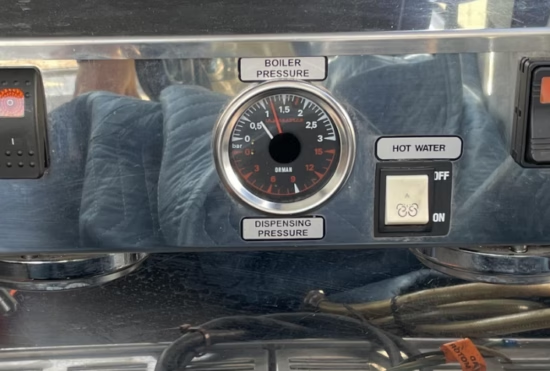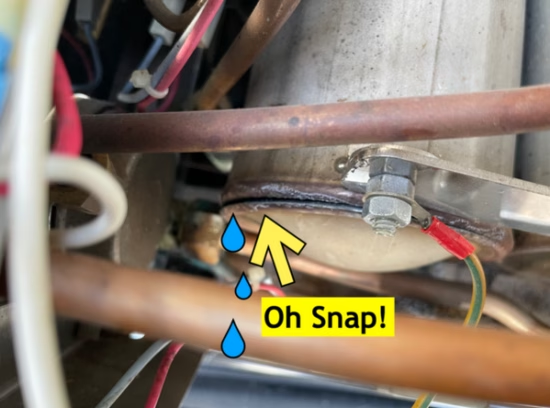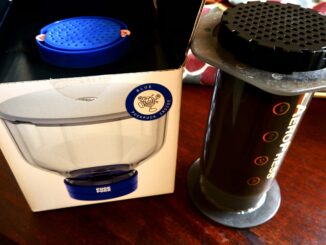
We look at the effect that freezing temperatures can have on your espresso machine, and preventative measures to take.
BY JON FERGUSON
BARISTA MAGAZINE ONLINE
Photos courtesy of Jon Ferguson
Have you ever imagined what it would be like to combine “Car Talk“ radio and “Dear Abby“ to create a column that focuses on coffee equipment service issues? Our new “Tech Talk Online” series might just be your answer!
In this biweekly column, equipment expert Jon Ferguson will be providing responses to common questions about coffee tech and helping troubleshoot issues that baristas, café owners, and other coffee professionals have about any and all coffee and brewing equipment. In today’s installment, he’ll be discussing how freezing temperatures in winter months can easily destroy your espresso machine, and how to protect yours.
Got a question for Jon about café equipment? Email techtalk@baristamagazine.com and let him know!
This Week’s Question: Is it OK to have my espresso machine stored (or turned off and left without power for extended hours) in a location that could potentially reach freezing temperatures overnight?
Jon’s Response:
There is no trick answer to this. The short answer is: No, it is not wise to leave your espresso machine in a place where it may reach freezing temperatures (32º Fahrenheit / 0º Celsius).
Ready for the analogy? Have you ever left an unopened soda or beer can outside to freeze, only to find that it has ruptured and made a mess and wasted a good beverage? When water turns to ice, it expands by around 9% in volume. Even when both the coffee boiler and the steam boiler on your espresso machine have been drained, there will be hydraulic lines in the machine that are difficult to clear well enough to avoid damage to components.
Unless “winterization” is conducted and performed by a qualified professional, simply draining the machine boiler(s) will not be sufficient to avoid catastrophic damage.
So, let’s review some of the types of damage that may occur to your machine when frozen!
Level 1 Damage: Gauges

The first components to go when your espresso machine is exposed to freezing temperatures are usually the pressure gauges. Since their tubes are tiny and delicate, you’ll see these damages often. Seeing this damage also provides evidence that more potential damage may have occurred.
Level 2 Damage: Solenoid Valves
Nearly every solenoid valve in the machine will potentially have leftover amounts of water within them, without much room for expansion (certainly not 9% of volume), so these components often rupture next. Ice can potentially destroy each one of your grouphead brew valves, fill valves, and more! The replacement of each valve can add up quickly, especially as the parts are typically not cheap and the labor involved can be costly.
Level 3 Damage: Heat Exchangers and Heating Elements
Now, we get to the more expensive and involved repairs: ruptured heat exchangers and busted-out heating elements! If your machine has any sort of system that has cold water passing through a boiler to heat up, then you’ll have a heck of a problem on your hands.
Additionally, if heating elements are left submerged in the water left in your steam boiler, the expansion of ice may damage the integrity of your heating elements. If you think valves are expensive, wait until you hear what replacing a heat exchanger will cost you!
Level 4 Damage: Coffee and Steam Boilers
Lastly, in some extreme (and unfortunately common) cases, you might witness a fully saturated coffee boiler or the physical grouphead rupture from the expansion of water turned to ice. I’ve seen it happen, as have most techs who work in areas where winter temperatures dip well below freezing. These are often the most dramatic photos to share amongst service techs!

Location, Location, Location
These issues tend to be more common in regions where outdoor dining and mobile trailers are more prevalent. The components listed above are a general list of possible damages—I did not include discussion on how some fittings may slightly expand to cause drips or annoying leaks.
The best decision you will ever make in regards to your espresso machine is to store it in an environment that is at room temperature, all year round. Otherwise, you could just move to Thailand or Cambodia, where you’ll never have to worry about freezing temperatures again.
ABOUT THE AUTHOR
Jon Ferguson has nearly two decades of experience across various facets of the coffee industry. He believes that with a deeper understanding of equipment used throughout the entire coffee supply chain, we can gain a deeper respect for the labor and technology required to transform fruit seeds into the beverages we all dearly love.
Subscribe and More!
As always, you can read Barista Magazine in paper or digital format. Read the December 2024 + January 2025 issue for free with our digital edition.
And for more than three years’ worth of issues, visit our digital edition archives here.





